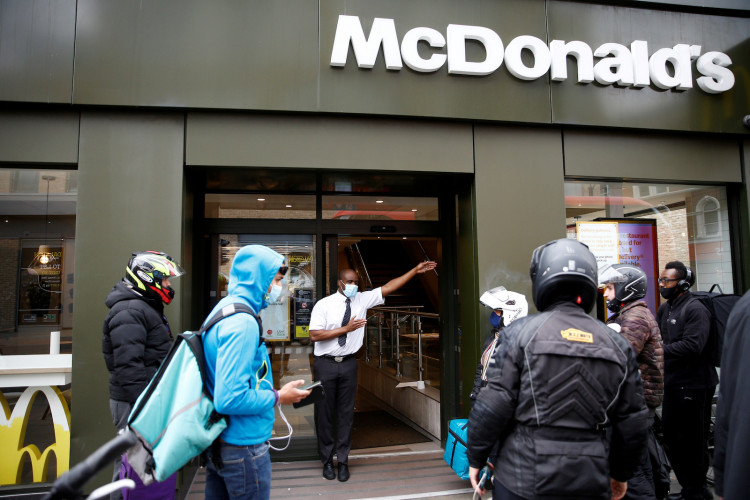While other nations appear to have implemented lax anti-coronavirus measures since the pandemic started, some governments have been in the news for their notable regulations to halt further COVID-19 infections.
The UK's 'Rule of Six'
On Monday, the United Kingdom will start implementing a new anti-coronavirus measure that Prime Minister Boris Johnson called the "rule of six."
The said new rule will only allow the British masses to hold gatherings or events up to a maximum of six people. Police have been given the authority to make arrests or fine people who refuse to abide by the new restriction.
Johnson made the announcement on Wednesday, during the first coronavirus-related briefing from the British government since around July.
Furthermore, Johnson made other announcements on additional restrictions that will most likely draw the ire of younger residents who have recently been at the center of Britain's latest surge in new COVID-19 cases.
In city or town centers, Johnson said there will be "COVID-secure marshals" who will help ensure that people stepping out will practice proper social distancing. Residents will also be required to provide contact details if they visit restaurants and pubs.
Johnson said that while it "breaks my heart to have to insist on these restrictions," it is crucial for the UK to "act" on the resurgence of new coronavirus cases in the country.
As of Wednesday, the United Kingdom has logged a total of 355,219 confirmed COVID-19 cases and 41,594 deaths.
Indonesian Capital to Reintroduce Measures
Before the Philippines overtook Indonesia to become the hardest-hit country in southeast Asia, Indonesia appeared to have controlled the surge of daily COVID-19 infections.
Starting Monday, Indonesia's capital, Jakarta, will reinstate widespread measures to curb the resurgence in daily cases, Gov. Anies Baswedan said at a news briefing.
As part of the reimplementation of strict social distancing measures, the capital will "be back to the early days of the pandemic," Baswedan said.
Earlier this year, Indonesia imposed social restrictions in schools and workplaces. As part of the reinstated measures, studying will be done at home and remote working will be encouraged.
Religious activities will also be done online, and restaurants in the capital will only be allowed to operate through delivery services. Only essential services will be allowed to operate as usual.
As of Wednesday, Indonesia has recorded a total of 203,342 confirmed COVID-19 cases and 8,336 deaths.
Istanbul Bars Adjust to Strict Measures
In the Turkish city of Istanbul, bar owners have been adhering to the government's anti-coronavirus regulations to prevent cluster infections linked to restaurants in the area.
Earlier this week, the Turkish Interior Ministry announced that music in bars, cafes, and restaurants across the country were no longer allowed by midnight. The goal of the new rule was to prevent people from gathering in the said business segments.
Many bar owners have also been following strict disinfection protocols before opening for daily business operations. Crew are stationed outside bars to ensure that guests will have their temperatures taken.
Turkey has nearly 285,000 confirmed COVID-19 cases and 6,837 deaths.





